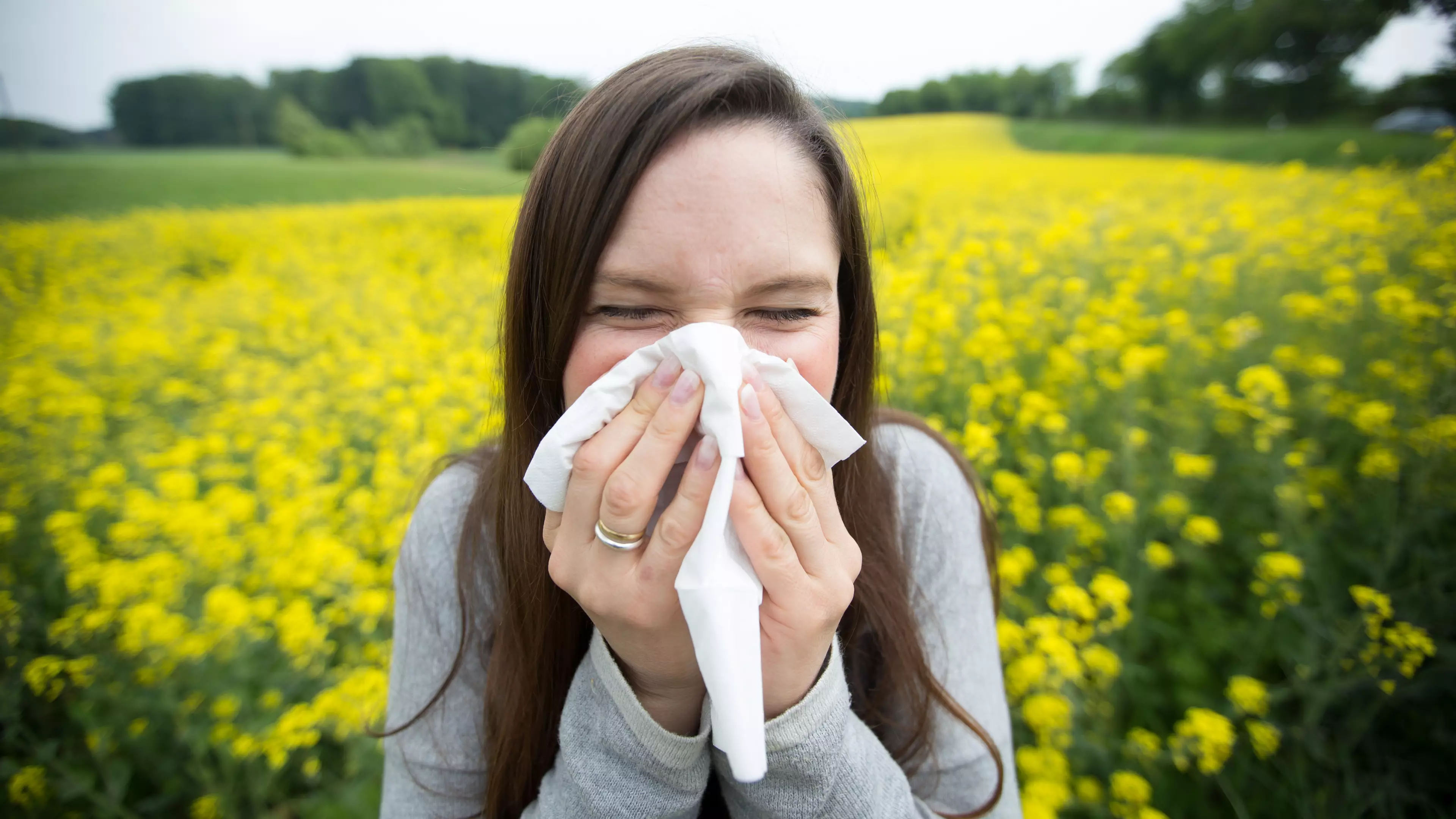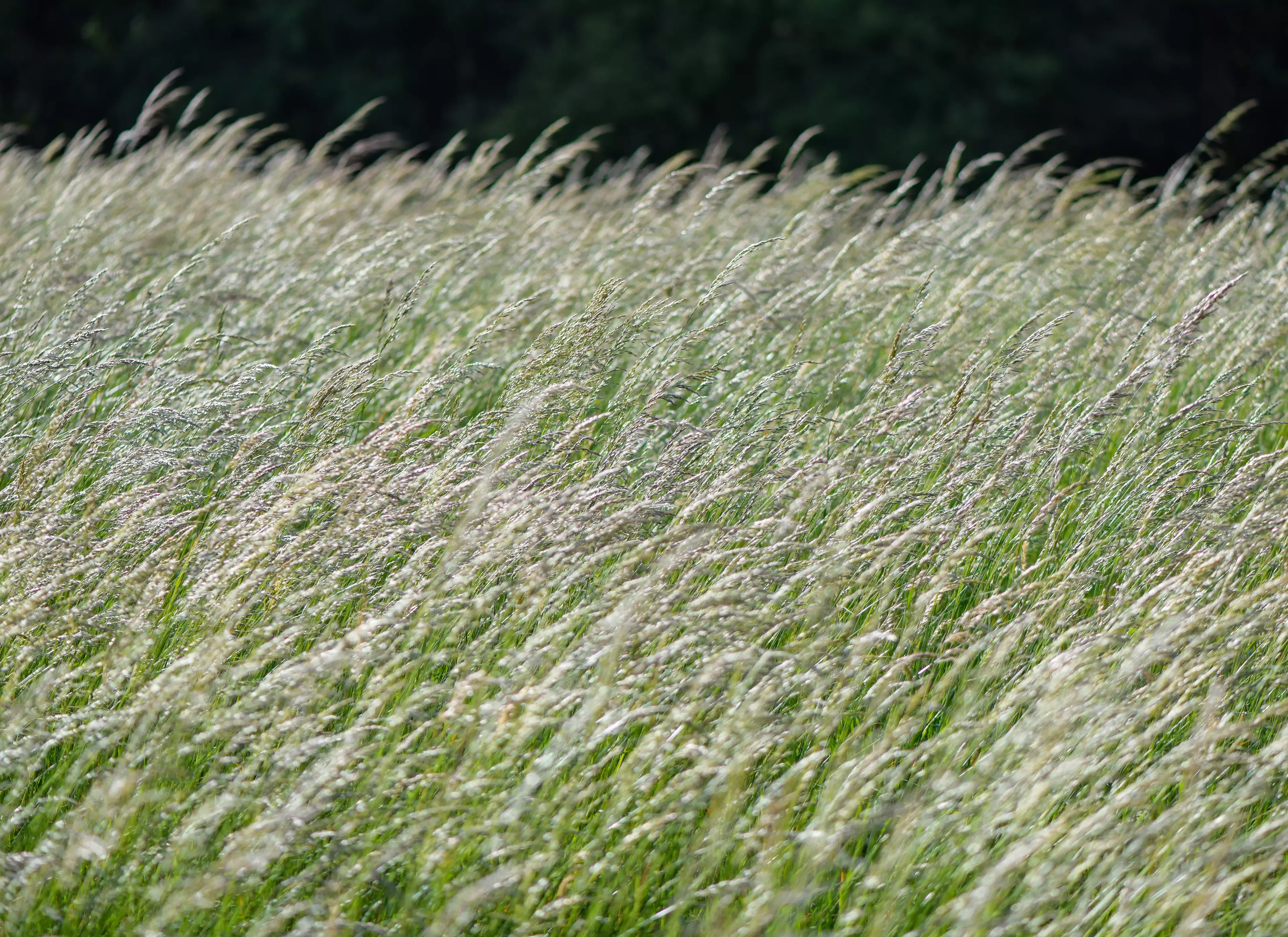
While it's all well and good having this sunshine to enjoy - FINALLY - we all know there's one major downside to the arrival of warmer weather: the nemesis that is hay fever.
The Met Office tweeted at the weekend to warn that pollen season is now officially underway, saying: "The grass #pollen season is now beginning with the arrival of the warmer weather, with more species coming into flower. Weed pollen is an increasing risk too."
A summary for Monday 31 May, posted on the Met Office website, says: "Grass pollen risk will increase as more species start flowering. Fungal spores at medium risk. Weed pollen increasing to medium risk."
Advert
Sounds... snotty.
According to the NHS, symptoms of hay fever include: sneezing and coughing; a runny or blocked nose; itchy, red or watery eyes; itchy throat, mouth, nose and ears; loss of smell; pain around your temples and forehead; headache; earache; and feeling tired.
If you have asthma, you may also have a tight feeling in your chest, be short of breath or wheeze and cough.

Unlike a cold, which usually goes away after a week or two, hay fever tends to last for 'weeks or months'.
Advert
OK, there's not much you can really do about hay fever, which spikes when the pollen count is high, but thankfully there are a number of things you can do to help alleviate the symptoms.
These include:
- Stopping the pollen from getting into your nose by putting Vaseline on your nostrils or wearing wraparound sunglasses
- Showering and changing clothes then you've been outside
- Keeping windows and doors shut
- Vacuuming and dusting your home regularly
- Simply staying indoors where possible
Advert
Home Remedies
Some people have even found simple home remedies that can help.
Last summer, shoppers alerted fellow sufferers to hay fever wipes, which are sold by a number of companies and aren't usually expensive - with budget store Savers selling wipes made by Nuage for just 99p.
In terms of getting a good night's sleep when hay fever is making life hell, as mentioned above you could keep windows shut in the evenings and early mornings - if you're feeling too hot, you could try putting your pillow case in the freezer before bed, or freezing a hot water bottle and taking it to bed with you. You can actually buy anti-allergy and hypoallergenic pillows too.
Advert
Showering and washing your hair as soon as you get home will also help to keep pollen out of your bed and home - all helping towards that much-sought-after good night's sleep.
With medication, there are a whole load of anti-histamine tablets, nasal sprays and eye drops out there - but always ask your GP before starting a new kind of medication.
One study even suggested sex may help, after scientists in Iran discovered that there is a link between the reproductive system and the nasal system.
You can also buy a pollen filter for the air vents in your car and a vacuum cleaner with a HEPA (high-efficiency particulate absorbing) filter, for a bit of extra help.

Advert
It's advised that you don't cut or walk on grass, nor should you spend too much time outside, keep fresh flowers in the house, smoke or be around smoke, dry clothes outside or let pets into the house - as they can carry pollen indoors.
Allergy UK also recommends starting any hay fever treatments early, saying: "Using treatments like nasal steroid sprays before the start of the pollen season may help to reduce the inflammation in the nose that contributes to the symptoms of Hay fever.
"And using antihistamines at the start of the season may help to reduce itchy eyes and a runny nose so symptoms will be more manageable when outside."
Featured Image Credit: PA